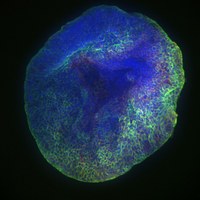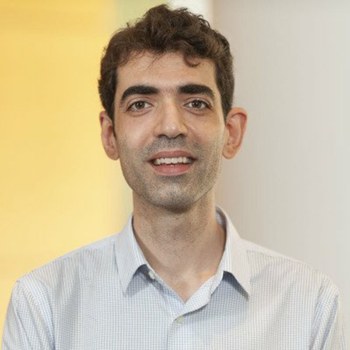Culturing human tumours in a dish: research and ethics
Battistini Lecture by Dr. Francesco Cambuli, USA Memorial Sloan Kettering Cancer Center (New York, USA) - Molecular Pharmacology Program - The Karuna Ganesh Laboratory
-
Date: 10 NOVEMBER 2020 from 17:30 to 19:00
-
Event location: Online event
-
Type: Lectures

For Rita Levi-Montalcini and Renato Dulbecco – Nobel Prize winners and pioneers of techniques for studying cells in vitro - cell biology was mostly bidimensional. In the last decade, researchers have developed strategies to culture stem and cancer cells in 3D by recapitulating the tissue microenvironment on a dish. Here, I discuss how the combination of genome sequencing and 3D organoid technologies contributes to the investigation of human tissues and cancer. Such scientific developments are opening unprecedented opportunities to treat tumours with greater precision. As one of the components of modern public healthcare systems, these new technologies have the potential to improve quality of life across our communities.
References
- Tuveson D, Clevers H. Cancer modeling meets human organoid technology. Science. 364, 952-955 (2019)
- Ganesh, K. et al. A rectal cancer organoid platform to study individual responses to chemoradiation. Nature Medicine. 25, 1607–1614 (2019).
- Crowley L, Cambuli F, Aparicio L, et al. A single-cell atlas of the mouse and human prostate reveals heterogeneity and conservation of epithelial progenitors. eLife 9:e59465 (2020)
- Cambuli F, Foletto V, et al. Non-canonical Activin A signalling safeguards epithelial quiescence in the healthy prostate. (in preparation)
- Boers SN, et al. Organoid biobanking: identifying the ethics. EMBO Reports 17 (2016)

Francesco Cambuli
Postdoctoral research fellow at Memorial Sloan Kettering Cancer Center (MSKCC) in New York.
His research focuses on stem cell, tissue, and cancer biology. He studied at the University of Bologna and obtained a Ph.D. from the University of Cambridge. Before joining MSKCC, Francesco worked at the University of Trento and Columbia University. His research has been supported by the Fondazione Umberto Veronesi, the Prostate Cancer Foundation and the Medical Program of the US Department of Defense.